Which Jobs Are in Demand in Canada in 2023 & Upcoming Years?
Long-term labor shortages in Canada have resulted in high levels of immigration. As a result, the country’s immigration system prioritises economic immigrants. Every year, Canada sets a target number of immigrants to accept, with a major part going to people with in-demand skills.
On June 12, Canada launched two new programs for skilled refugees and other displaced individuals known as the Economic Mobility Pathway Pilot (EMPP). Statistics Canada’s employment vacancy report for March 2023 highlighted the industries having the highest job vacancies in Canada:
Health care and social assistance
This industry had 144,500 job openings, making it the sector with the most prospects. It includes a variety of establishments that provide health care, residential care, and social assistance. This industry’s jobs are frequently regulated at the provincial level.
Accommodation and food services
This industry employs 109,100 people and comprises workers in tourism, hospitality, and food and beverage service. Opportunities can be found in hotels, restaurants, recreational areas, and campers, particularly in famous tourist destinations such as Banff National Park and Waterton National Park.
Retail trade
There were 88,300 vacancies in this category, which includes sales roles in internet retail, direct selling, mail-order, and brick-and-mortar retail enterprises. Skilled retail employment may qualify people for specific immigration programs in Canada, according to the National Occupation Classification (NOC) system.
Construction
Construction jobs have 72,600 vacancies and involve activities such as building, maintenance, remodeling, land development, and civil engineering. Outpost Recruitment specializes in finding engineering and construction employment in Canada, particularly in civil, infrastructure, and building projects.
Manufacturing
This industry, which had 63,100 open positions, involves the transformation of raw materials into final commodities by chemical, mechanical, or physical processes. Consumable products, fabrics, wood, plastics, metals, and other materials are all manufactured in manufacturing processes.
Apply for Canadian immigration
If you are a foreign worker looking to work in Canada, you will likely need a work permit. A work permit is a document issued by Immigration, Refugees, and Citizenship Canada (IRCC) that allows you to work in Canada for a certain employer for a limited time. To facilitate entry to Canada, the Express Entry system administers the majority of the country’s immigration programs, including the Canadian Experience Class, Federal Skilled Trades Programme, Federal Skilled Worker Programme, and many Provincial Nominee Programmes. Express Entry works on the basis of an interest selection procedure, in which applicants submit a profile outlining their intention to immigrate. Individuals who meet the eligibility for Canada express entry requirements are assigned a Comprehensive Ranking System (CRS) score and may be asked to apply for permanent residency in subsequent draws.
Canada has recently announced the use of Express Entry drawings based on categories. Individuals in the Express Entry pool with at least six months of work experience in specified qualifying occupations will be targeted in these categories. Furthermore, Canada will prioritize French-speaking individuals working in fields such as healthcare, STEM, trades, transportation, and agriculture this year. It is vital to note that fulfilling the Express Entry minimal standards is required before to counting the six months of qualifying work experience for category-based selection.
Types Of Work Permits
There are several types of work permits available in Canada, including:
Employer-Specific Work Permits:
With this type of work visa, you can work in Canada for a specific employer. Your employer must first acquire a Labour Market Impact Assessment (LMIA) from Employment and Social Development Canada (ESDC) before applying for an employer-specific work permit. The LMIA verifies that there are no Canadian workers available to fill the position.
LMIA-Exempt Work Permits:
Certain work permits may not need the submission of a Labour Market Impact Assessment (LMIA) in Canada. Certain types of workers, such as NAFTA professionals, intra-company transferees, and post-graduate work permit holders, are eligible for LMIA-exempt work permits.
Open Work Permits:
An open work permit allows you to work for any employer in Canada, except those who are found to be in breach of Canadian labour laws. Open Work Permitsprioritizes in Canada may be granted to certain categories of employees, including international students, spouses or common-law partners of Canadian citizens or permanent residents, and refuge claimants.
Staying up to speed with official government information and working with immigration professionals helps ensure accurate and up-to-date knowledge of the Express Entry system and selection categories.
Recent Blogs

About Author









